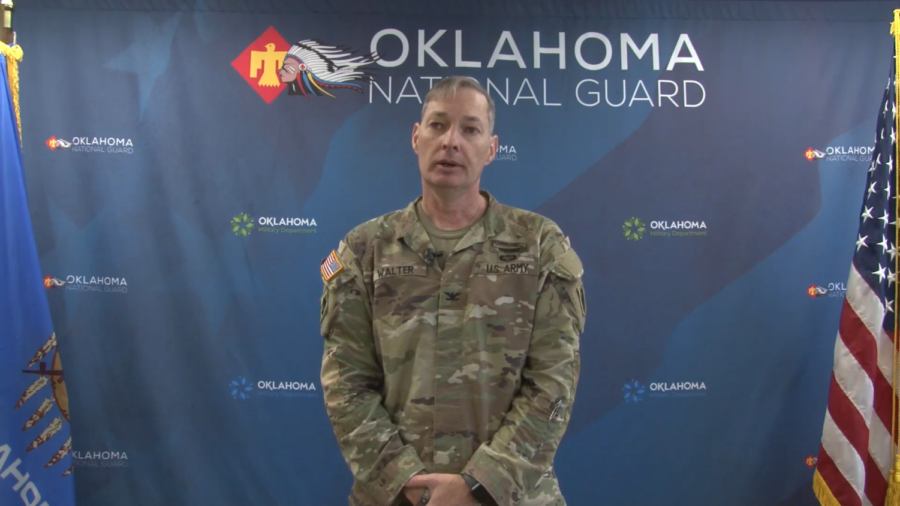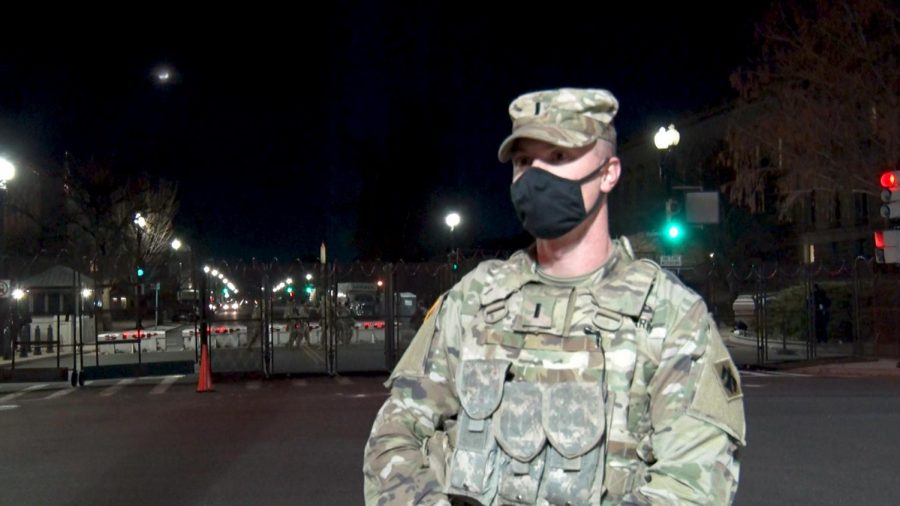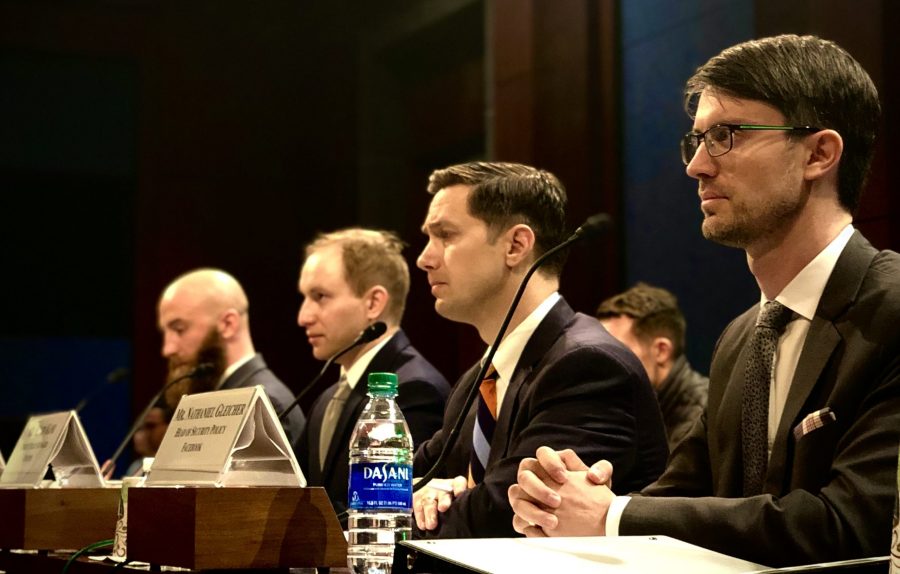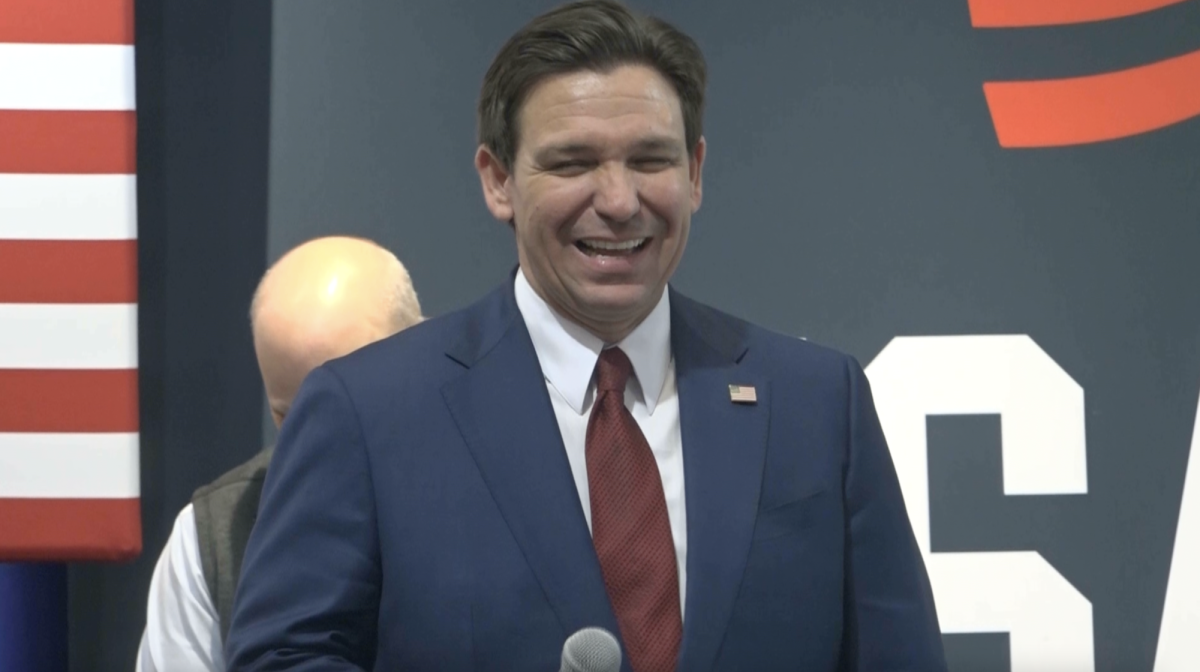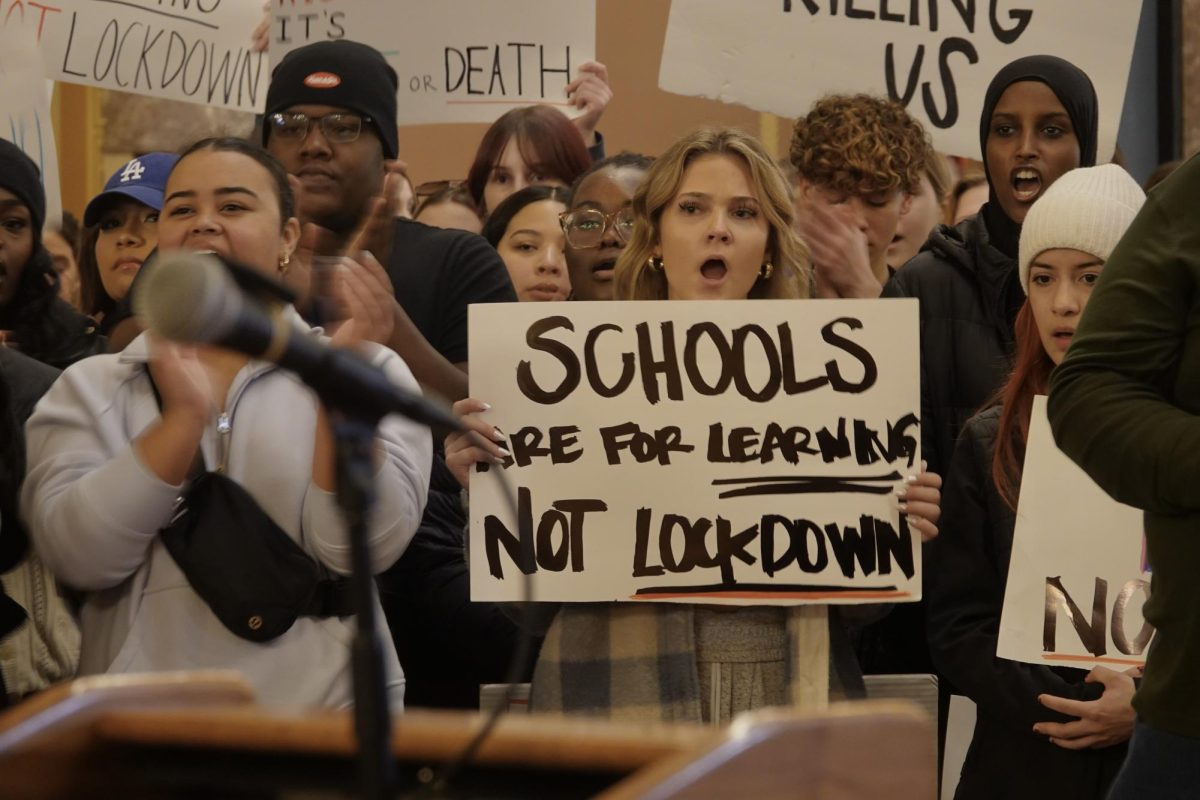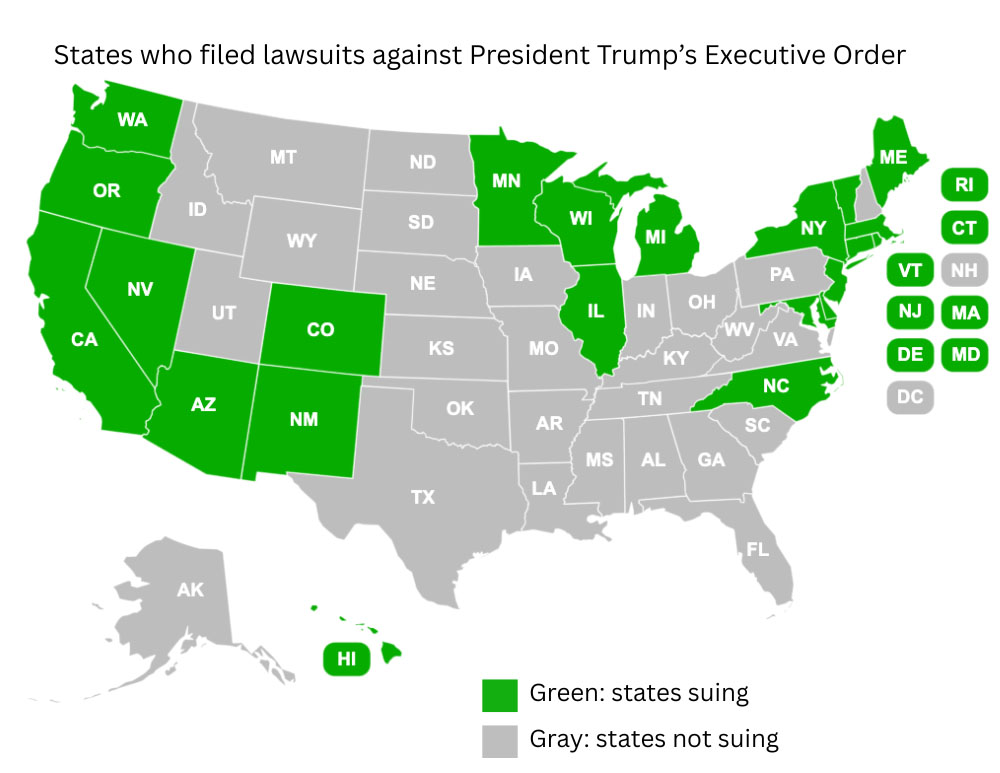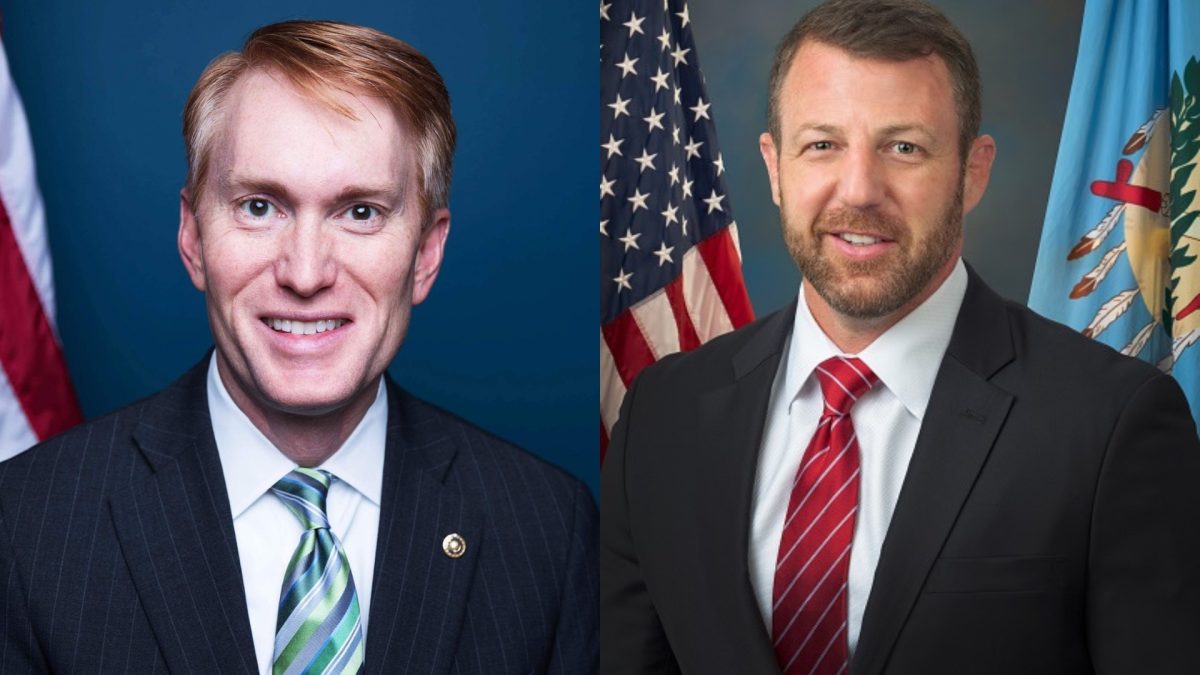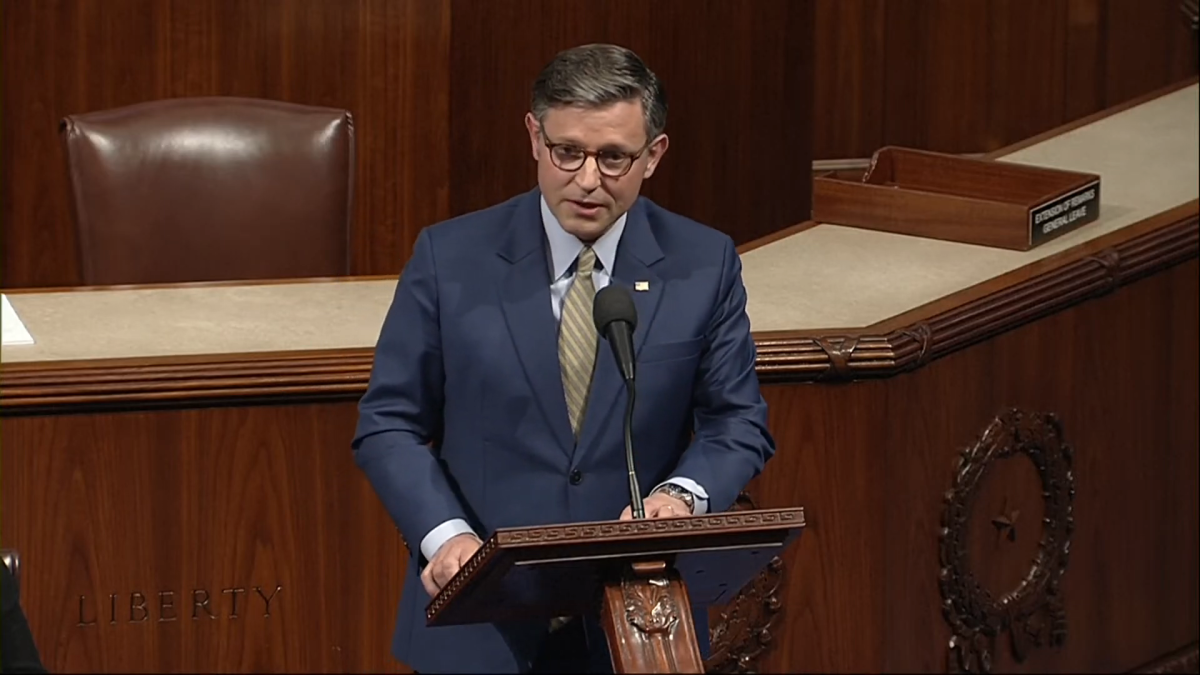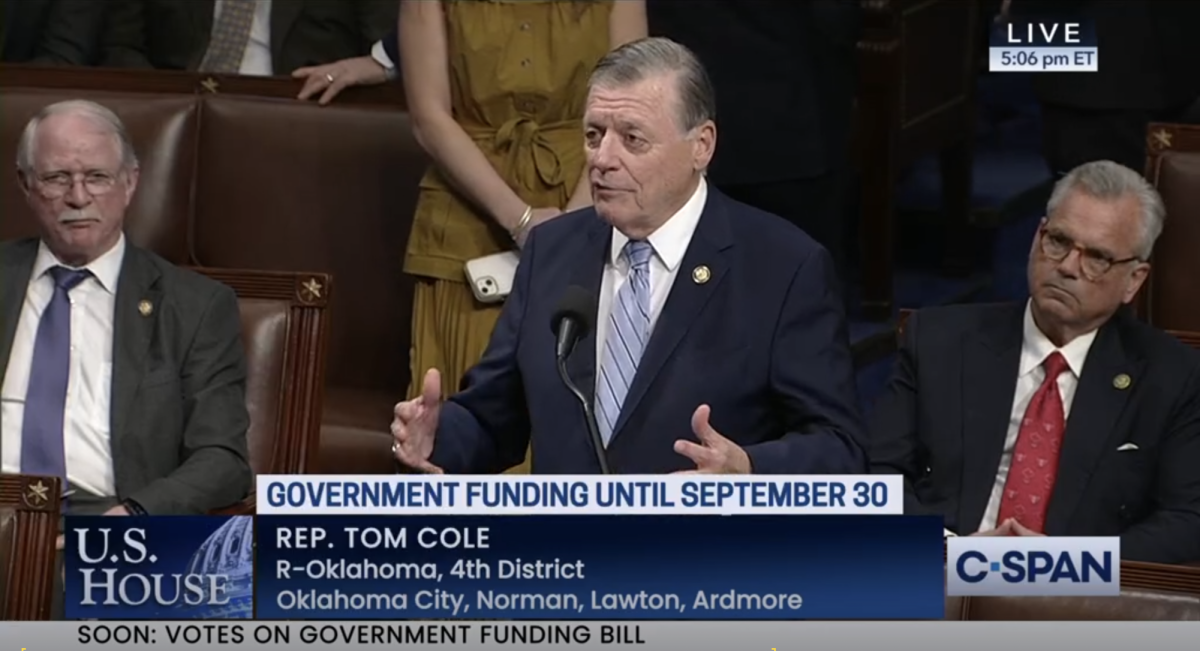WASHINGTON – While the government will not be shutting down for the holidays as some feared, some members of the military said the short-term funding bill signed Thursday by President Joe Biden still creates uncertainty and hinders the military’s ability to prepare for missions.
“The continuing resolution just kind of kicks the can a little further down the road for us. We’re still always worried about, you know, in two months, am I going to come to work? Am I going to get the parts that I need at work?” said Brandon Cejka, a helicopter crew chief for the Oklahoma Army National guard.
“It’s always just being pushed a little further down the road, and you’re never getting a definite answer,” he said.
The continuing resolution, which passed by an 87-11 vote in the Senate Wednesday, finances agencies at the same levels as the previous year, buying Congress more time to pass a new federal budget. This time, however, the bill uses a “laddered approach,” which staggers expiration dates for the funding.
Under the bill, funds for military and veterans programs, agriculture and food agencies, and the Transportation and Housing and Urban Development departments would expire Jan. 19. Funds for the State, Defense, Commerce, Labor, and Health and Human Services departments, among others, will expire two weeks later on Feb. 2.
But while the military is funded for the time being, the budget doesn’t account for price increases due to inflation or for new expenses.
“With resolutions like we just had in October, we’re allowed to be there, but we don’t have the funds to fix anything, we can’t buy parts to get our vehicles up (or) to keep our aircraft going,” said Dustin Taber, an avionics technician for the Oklahoma Army National Guard. “We’re still not able to go out and service the communities like we’re designed to do.”
Taber said the National Guard is designed for state missions, such as providing generators to homeless shelters and schools during deep winter freezes. But without adequate funding, he said they’re not able to buy new parts to fix generators in order to serve these communities.
“Without us being able to keep our equipment running, we can’t loan it. Now the people don’t have what they need to survive,” Taber said, noting the importance of having this equipment during Oklahoma winters, which can be severe.
Additionally, Taber said with a continuing resolution, which doesn’t provide enough funding for adequate resources, military responses that once took 24 hours might now take 48 to 72 hours.
“Those are critical hours,” Taber said. “That’s the difference between somebody freezing to death and somebody surviving.”
‘Never ending cycle’
The recently passed continuing resolution is the latest attempt to avoid a government shutdown, coming just weeks after the previous resolution was passed on Oct. 1, when last year’s funding expired.
However, the threat of a shutdown is far from over.
When Congress returns, it won’t have much time to pass the 12 government spending bills before the new funding deadlines expire. And if it doesn’t, a debt-limit agreement will impose a 1% cut across the board — including on military and veterans programs.
“We’re going to run into this every two months until a full budget is passed,” Cejka said about the funding issues the military faces with continuing resolutions. “And then by the time they pass that one, it will probably be time for a new one.”
“It kind of feels like a never ending cycle,” added Ian Caldron, a helicopter mechanic for the Oklahoma Army National Guard.
Though Cejka and Caldron said people in the military try to prepare for government shutdowns, it is particularly stressful for newer members who may not have savings to fall back on.
In the event of a shutdown, troops are furloughed or continue to carry out missions deemed essential to national security, but without getting paid. However, back pay is guaranteed by the Government Employee Fair Treatment Act, which was signed into law in 2019.
“They’re just starting out…most of them are fresh out of high school,” Caldron said. “So they might not have the money saved up, that kind of thing. So it might be kind of a bit of a wake up call for them.”
Taber said a lot of people in the military live paycheck-to-paycheck, so the potential government shutdowns creates personal stress on top of not being able to fully perform their military duties because of a lack of funding.
According to a 2019 survey conducted by HarrisX on behalf of the Online Lenders Alliance, 54% of active duty military households live paycheck-to-paycheck, with 14% doing so every month.
“A lot of these guys are like, ‘It’s not worth it.’ And so they’re getting out, or they’re not signing up. And so our military is struggling for personnel,” Taber said.
In October, Army Secretary Christine Wormuth told reporters at the Pentagon that the Army hit just 55,000 commitments in the fiscal 2023, which ended on Sept. 30 — 10,000 short of its target for new recruits, according to The Hill.
This is the second fiscal year that the service has failed to meet its recruiting goals, resulting in the smallest full-time force since 1940, according to the Army Times.
“In this time of uncertainty, who would want to join an organization and give them so many years of your life when you don’t even know if you’re going to be able to get paid?” Cejka said.
‘It makes it hard to just exist’
When the first threat of a government shutdown occurred in September, Cejka was a week away from graduating Aviation Life Support School, but because of the funding issue the school was going to send him home before he could graduate.
“I would have had to go back to the course (and) spend more time away from my family, my friends,” Cejka said. “Luckily (a CR) got passed, and then we’re back here again and back at work.”
For Caldron, he left work that Friday night before funding expired not knowing if he would come back the next week. He had returned from a deployment in Iraq six months ago and had just spent most of his savings furnishing his new apartment.
“Just kind of that uncertainty of ‘what are we going to do,'” Caldron said, adding that if a shutdown went longer than a month, he would be worried about his finances. “(You’re) kind of hoping you come back, but kind of have to prepare for the worst.”
Then, just weeks later, the government was poised to shut down once again.
A second resolution was passed, a shutdown avoided, but those in the military say it’s only a matter of time before the country is faced with yet another budget crisis.
“We go through this about every year,” Taber said. “It really affects what (the military is) capable of doing.”
“The burnout is there,” Cejka said. “You’re tired of the constant back and forth, you’re tired of not having, you know, the things you need to do your job…It makes it hard to just exist.”
Gaylord News is a reporting project of the University of Oklahoma Gaylord College of Journalism and Mass Communication. For more stories by Gaylord News go to GaylordNews.net.




